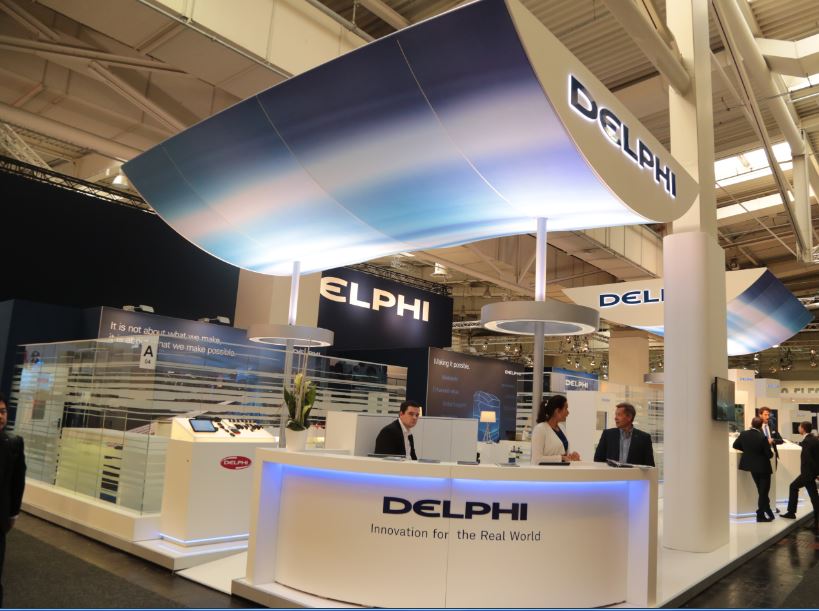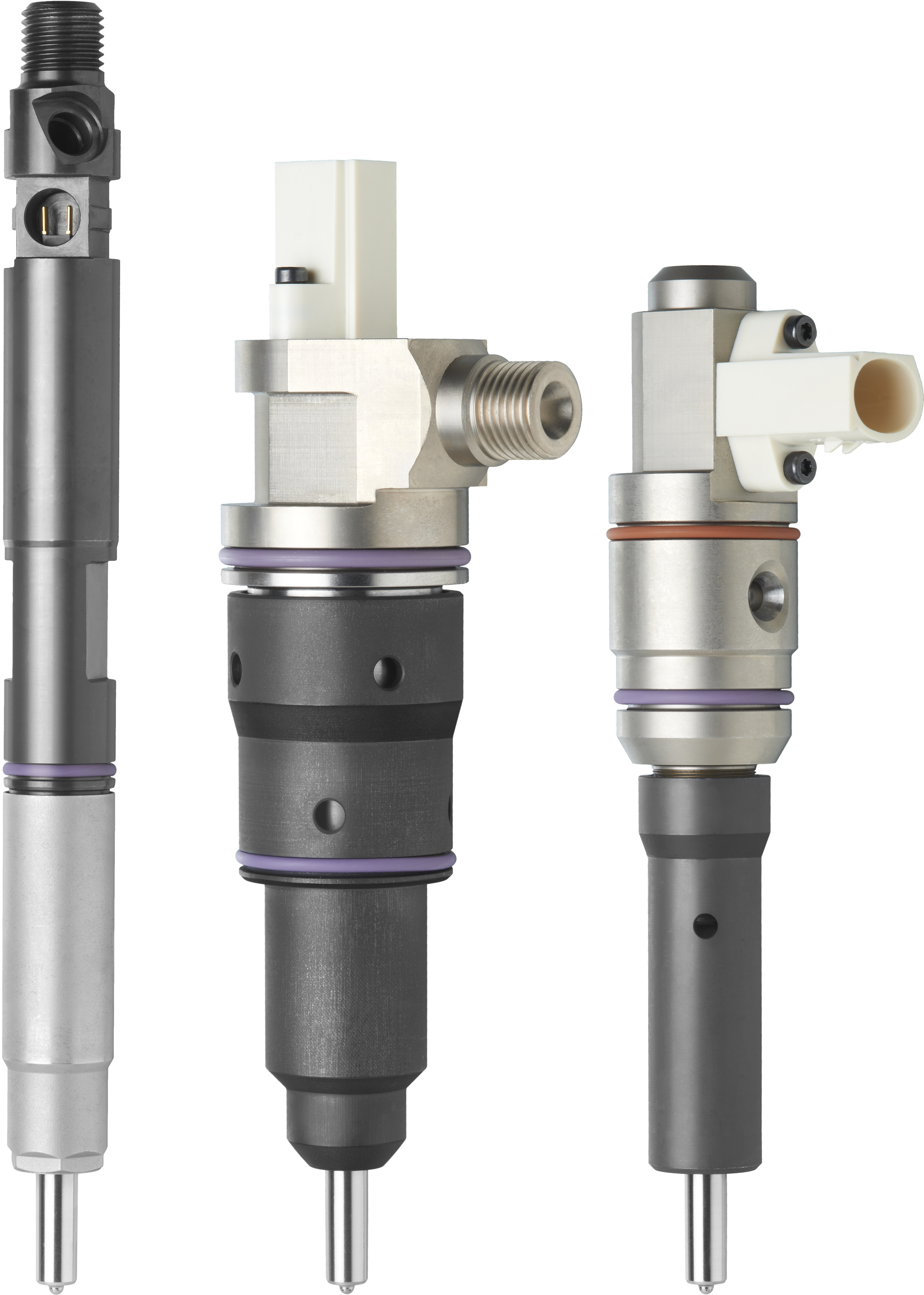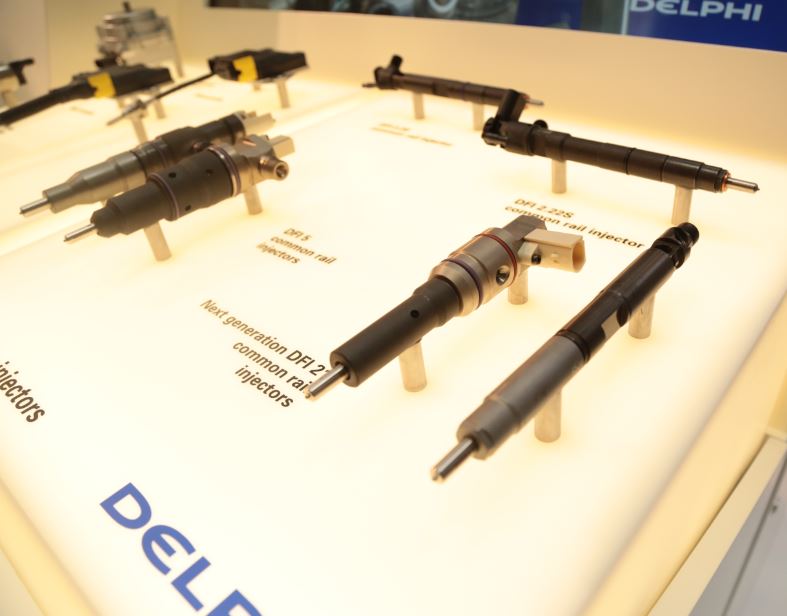At the IAA Show, a new generation of ultra-high precision, modular fuel injection systems is revealed by Delphi Automotive PLC. Designed using an approach that Delphi calls ‘Clever not Complex’, the new systems build on the company’s proven Euro VI common rail technology with the introduction of advanced features that allow it to deliver a substantial improvement in emissions, fuel economy and refinement while maintaining exceptional reliability.
“At the heart of our strategy is an understanding that best-in-class performance is only attractive if it is combined with the attributes that keep vehicles on the road, working profitably. Almost three years since the introduction of our Euro VI system, which is used world-wide by many of the big vehicle and engine manufacturers, the reliability of Delphi’s very high precision injectors continues to be exceptional. It’s a huge compliment to Delphi’s engineers.” stated Delphi’s Vice President Powertrain and General Manager Fuel Injection Systems, Kerem Erman.
The new family of F3 systems builds on this proven technology with a number of carefully chosen innovations, each one integrated into the existing packaging dimensions to allow cost-effective integration with existing engine designs. Together, these allow the Delphi system to provide closed-loop control of up to nine injection events, providing much greater control over combustion while also helping to maintain the system’s original performance for the lifetime of the engine.
Closed- Loop Control for lifetime performance
At the heart of the new common rail system is a ground-breaking injector that provides the control unit with real-time information on the operation of the injector. The system has no additional wires and requires no extra interfaces or packaging space. Data from the injector allows the implementation of closed loop control that continuously monitors and optimises injection events to compensate for changing conditions, including wear, as the vehicle ages. Delphi believes the system will allow ‘as new’ injector performance to be maintained for at least 1.6 million km (1.0 million miles).
Closed-Loop control also eliminates the compromise in injector calibration previously required to accommodate drift over its lifetime. Engineers can specify the calibration that delivers the best performance from new, knowing that the chosen injection sequence will be maintained throughout the engine’s life. This allows more and smaller injection events to be specified because the closed-loop system ensures they will happen accurately right to the end of the engine’s design life.
The system also removes the need to scan the injector characterisation code when an injector is fitted the information is held in the injector’s memory and transmitted directly to the Engine Control Unit. As well as simplifying original manufacture, this will save time and cost if an injector has to be replaced in service. It also eliminates the possibility that the injector code will not be updated when an injector is changed, which could lead to increased emissions and reduced fuel economy.
“Closed-loop control is essential for the next generation of fuel systems, but it has to be achieved without adding complexity. Delphi’s new closed-loop injector for medium and heavy duty applications achieves this with a simple, elegant design that requires no additional wiring. We believe this is not only one of the most effective close-loop control solutions, but that through clever design it is also the simplest” said Erman.
New 1mm valve allows up to nine injection events
By working closely with its manufacturing specialists to develop new, ultra-high precision metal finishing techniques, Delphi has also achieved a break-through in injector valve size, specifying a new, light-weight valve of just 1.0 mm diameter for the new DFI 21 injector that is at the heart of the F3 family of common rail systems. When combined with improvements in hydraulic efficiency and the consistently precise control provided by the new closed-loop system, the DFI 21 injector allows up to nine injection events per cycle compared with just two-three for a typical Euro VI system.
The ability to specify precise, multiple injection strategies provides substantially improved opportunities to profile the entire combustion event. Peak temperatures can be minimised, reducing NOx creation, and post injections can be specified to reduce soot. Testing by Delphi and by engine manufacturers has also highlighted impressive injection stability, with a consistently clean start and finish to each event. By allowing combustion to begin more gently, multiple pilot events also provide a significant improvement in engine refinement.
“The ability to effectively profile the combustion means that the need to compromise between CO2, NOx and particulates is greatly reduced. That gives engine designers much greater flexibility in their after-treatment strategy, potentially reducing system costs and allowing a reduction in SCR fluid consumption, which can be of significant value to long distance operators” continued Erman.
In addition to the in-service and emission benefits, Delphi anticipates improvements in fuel economy of up to 1.5 percent from combustion improvements. Further reductions in emissions and fuel consumption will come from hydraulic efficiency improvements in the fuel system. While the date of introduction is dependent on customer programmes, Delphi currently anticipates the first applications for the new F3 Common Rail System will enter production around 2021.
Flexible architecture for heavy and medium duty
F3 is the first Delphi common rail system family to cover both heavy duty and medium duty engines, using a range of proven, modular sub-systems that allow applications from 0.7 litres per cylinder up to 3.0 litres per cylinder and beyond. Particular attention has been paid to materials selection and validation across all known global fuel specifications, allowing application worldwide.
As with the Delphi’s F2 systems for Euro VI, three common rail architectures are available: traditional common rail with a remote pump, EUI-style with a cam-driven pump in selected injectors and EUP-style with separate pumps driven by a cam in the engine block. Injector fitment dimensions are also unchanged, allowing integration with engines originally designed for EUI or EUP without costly changes to major engine components.
“Delphi’s new system will help vehicle and engine manufacturers meet the toughest global emissions and fuel economy regulations from 2021 and through the next decade. Because our system is modular and evolutionary, it helps minimise engineering costs, reduces component variety and accelerates engineering development. It’s an exciting yet very practical step forward” concluded Erman.
Complementary technologies
Delphi has also developed a new family of engine and powertrain controllers that are substantially more powerful than the current generation. The use of Application Specific Integrated Circuits allows additional features to be included, for example to increase cyber security, integrate SCR control and to reduce calibration times.


